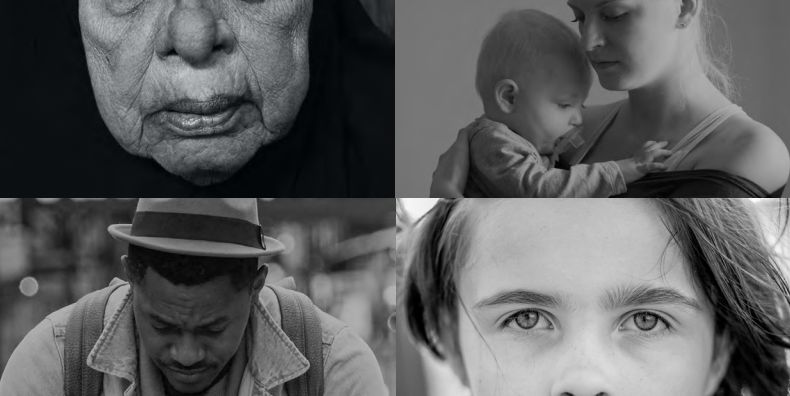Buckinghamshire Domestic Violence and Abuse Strategy 2021 to 2024

5. What next?
What success looks like
The purpose of the strategy is to set out our partnership approach to ending domestic abuse in Buckinghamshire. Our strategy is ambitious, and rightly so, as we seek long-term safety in homes, relationships, community and society. We have strong foundations to build on but none of us can do it alone, our partnership is vital. Survivor-focussed outcomes will be central to our action plan, and our class-leading strategy and services will have those affected by domestic abuse at the heart of everything we do.
The Domestic Abuse Board will meet quarterly, monitoring progress against a detailed action plan and the strategy will be reviewed in full every three years.
As well as being compliant with all statutory duties, outcomes and successes we would like to see are:
- A domestic abuse preventative model adopted across the partnership.
- Domestic abuse awareness and understanding healthy relationships (including sexual relationships and sexual violence) as an integral part of education in schools, colleges and universities.
- More perpetrator programmes including increased monitoring of perpetrators.
- Work places and employers taking a proactive approach with employer toolkits, training and communications.
- Increased availability of refuge places for non female victims throughout the authority, as well
as utilisation of non-refuge safe and relevant accommodation. - All services taking responsibility for, and understanding the role they play, in relation to
improving responses in relation to domestic abuse. - Better informed professionals and consistent, easily accessible information (language and format) about domestic abuse across all services.
- An increase in the number of people engaging with services beyond the initial referral.
- More successful domestic abuse prosecutions and increased use and awareness of the Domestic Violence Disclosure Scheme (Clare’s law).
- A mapped and utilised referral pathway to support for victims engaging with the Criminal Justice System, and support through Family Courts.
- Services to help facilitate safe and relevant accommodation for those wishing to stay in their own homes, using tools such as the Sanctuary Scheme.
- All services having a commitment to cross-agency management of risk and delivering
improved outcomes for victims, children and perpetrators. - Utilising a wide range of distribution models to have a consistent ‘Zero Tolerance’ communications plan with effective publicity.
- Reduction in repeat victimisation to prevent further abuse for victims and families.
- Pathways that consider the whole family (including the management or removal of
perpetrators) in referrals, triage and support. - Specialist services in place (with accessible and relevant information) for minority ethnic groups and other minoritised communities, male victims, older adults, children and young people.
- Utilisation of the reflective ‘Distance travelled’ model as a way of monitoring successes and effectiveness of all services.
- Continued, trauma informed service developments, through knowledge that a victim’s story is more powerful than numbers and that victims are the experts on domestic abuse.
Accountability and governance
Domestic abuse is an ever evolving issue, with changes in society, economy and even technology having a significant impact on both victims and current and potential perpetrators.
This strategy is designed to be flexible in order to adapt to changing needs and national guidance.
The Domestic Abuse Board is responsible for the implementation of this strategy. It will oversee its effectiveness, action plans and direct funding commitments, monitoring progress and deploying working groups as needed.
The strategy is underpinned by an action plan that will be championed by each partner within the Buckinghamshire Domestic Abuse Board. Actions developed will be directly linked to our identified outcomes and commitments with each agency committing to ensure that they have effective mechanisms in place that contribute to its delivery.
Feedback from those who use interventions and services will form a vital part of service development, our commissioning and our monitoring procedures. We will work to ensure that the voice of survivors, of families affected by domestic abuse and of perpetrators who have interacted with our services, informs and continually improves our provision.
The Domestic Abuse Board will provide annual monitoring reports to the Safer Buckinghamshire Partnership, the Police and Crime Commissioners Office, and Safeguarding Boards, setting out progress against our vision and identified outcomes.
This strategy is warmly welcomed by the Partnership ‘Joint Chairs’ group which brings together Chief Officers and Chairs of Buckinghamshire’s statutory partnerships:
- Safer Buckinghamshire Community Safety Partnership Board
- Children’s Partnership
- Adult Safeguarding Board
- Health and Wellbeing Board
Across each board, there are several shared priorities which relate to safeguarding communities and improving health and wellbeing. Throughout these shared priorities, domestic abuse is a prevalent theme.
This is a critical time with the introduction of the landmark Domestic Abuse Act 2021 . This strategy highlights our dedication to victims within Buckinghamshire and to those coming in from out of the county, ensuring those we support are safe, protected, and empowered to rebuild their lives. Together we can achieve real, sustainable progress to tackle domestic abuse with Zero Tolerance. There’s no excuse.
Signed by:
Rachael Shimmin - Chief Executive, Buckinghamshire Council
Sir Frances Habgood - Chair, Buckinghamshire Safeguarding Children Partnership & Buckinghamshire Safeguarding Adults Board
Sarah Ashmead - Deputy Chief Executive, Buckinghamshire Council Chair, Safer Buckinghamshire Partnership
Angela Macpherson - Deputy Leader, Buckinghamshire Council Cabinet Member, Health & Wellbeing Chair, Health & Wellbeing Board
Gill Quinton - Corporate Director, Health and Adult Social Care, Buckinghamshire Council
Richard Nash - Corporate Director, Children’s Services, Buckinghamshire Council
Neil Macdonald - Chief Executive, Buckinghamshire Healthcare NHS Trust
Mike Loebenberg - Chief Superintendent, Thames Valley Police Vice Chair, Safer Buckinghamshire Partnership
The following links provide Government Guidelines around Local Authority Commitments:
For more information about Buckinghamshire’s Domestic Abuse Board or any information in this strategy please email: [email protected]